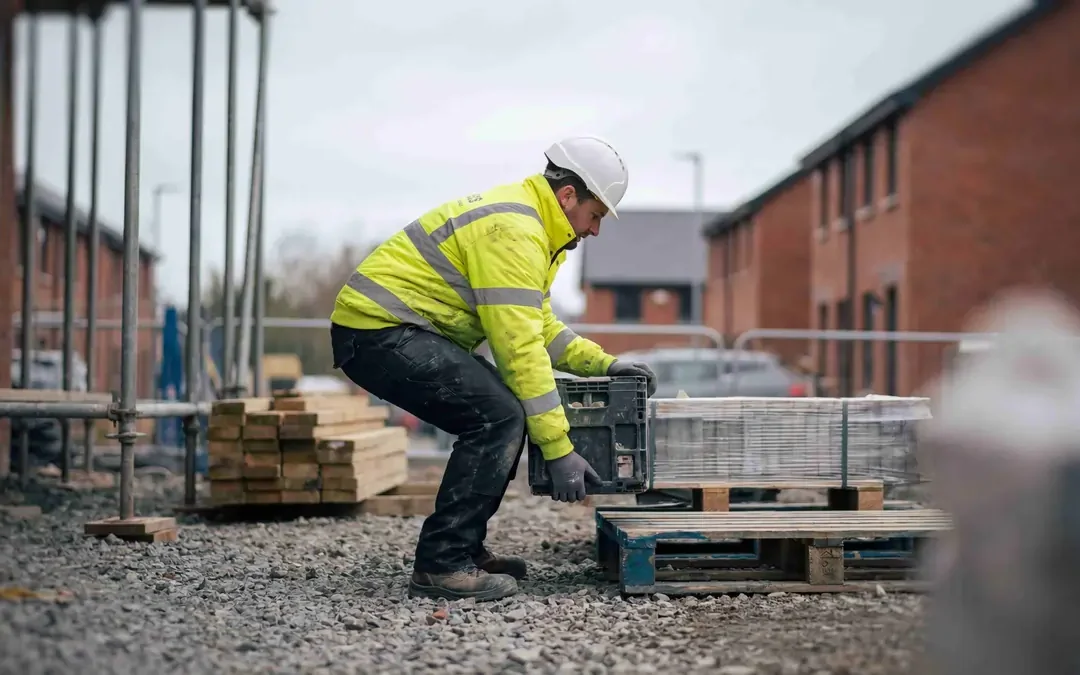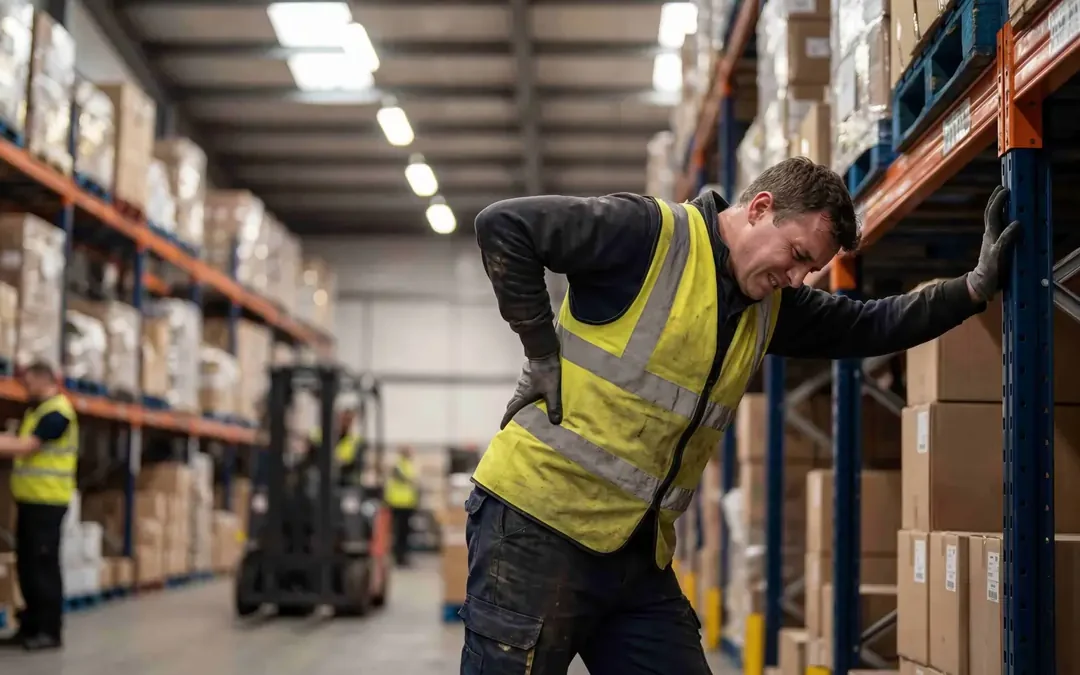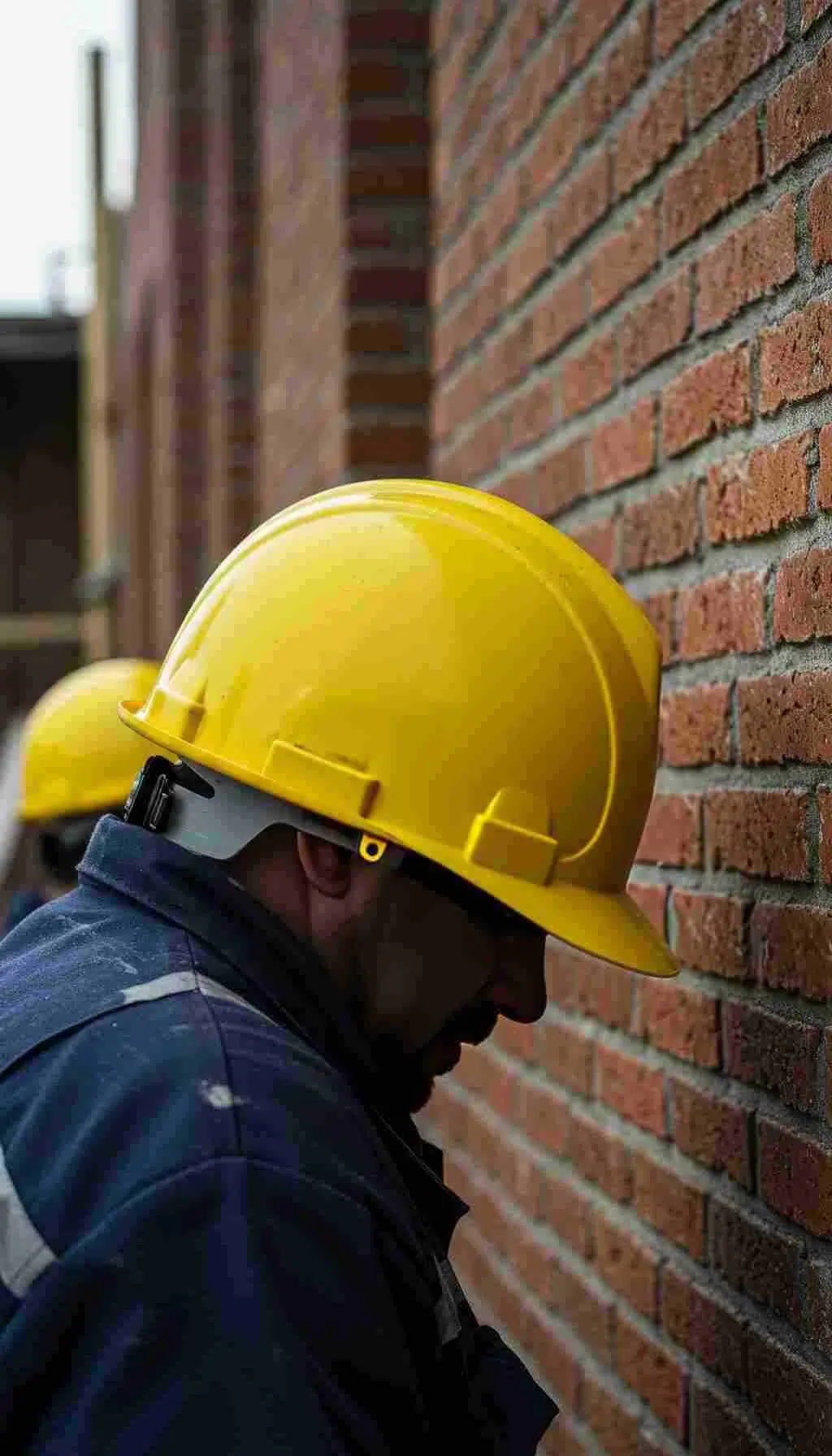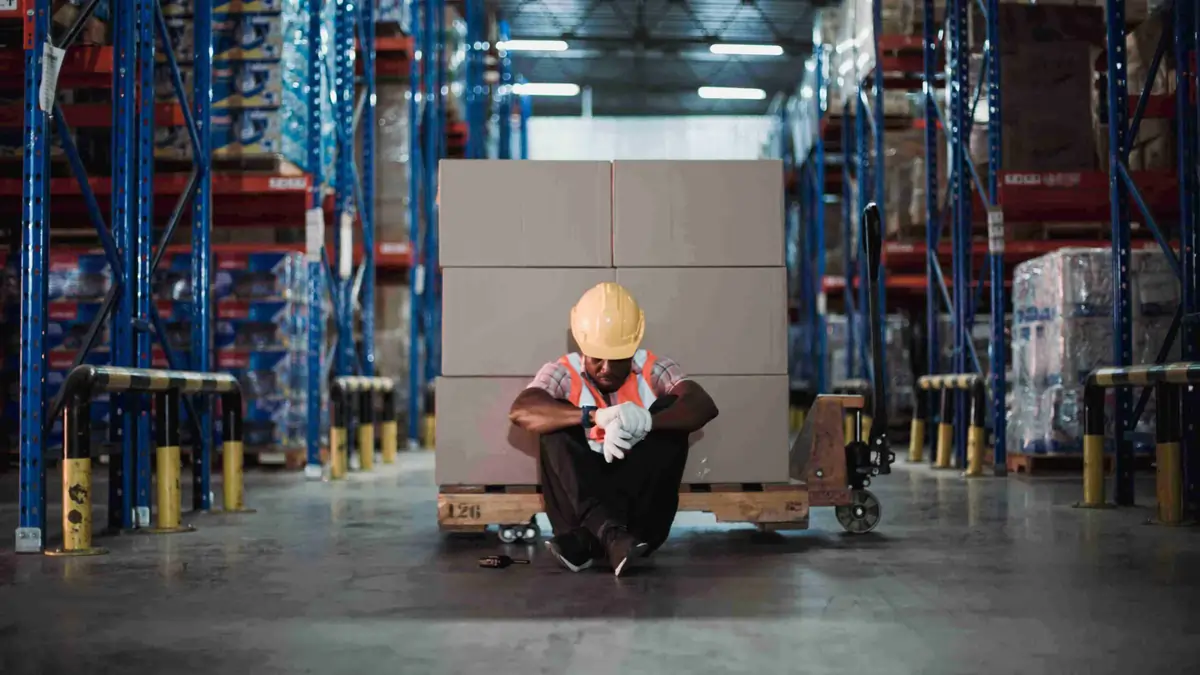The 3 Biggest HSEQ Trends Right Now: Insights from Europe’s Top Safety Summits
What You Really Need to Know
Why HSEQ Trends from Europe Matter for Irish Businesses
HSEQ trends emerging from Europe’s leading safety summits are reshaping how organisations approach health, safety, environment, and quality management. In 2025, three themes are dominating discussions across Europe artificial intelligence in safety management, mental health and psychosocial risk control, and the integration of sustainability into HSEQ systems. For Irish businesses, understanding these trends is no longer optional; they represent practical, actionable changes that will influence compliance expectations, workforce wellbeing, and long-term business performance.
From October 23-24, 2025, hundreds of HSEQ professionals gathered in Berlin for the HSE360° Summit, one of Europe’s premier health, safety, and environment conferences. Alongside other major European safety summits throughout 2025, these events have revealed three critical trends that are reshaping how we think about workplace safety, health, and environmental management.
You didn’t need to attend these conferences to benefit from their insights. The themes emerging from these gatherings aren’t academic abstractions they’re practical, actionable trends that Irish businesses across all sectors need to understand and prepare for. Whether you’re managing a construction site in Cork, a manufacturing facility in Galway, or an office environment in Dublin, these trends will impact how you approach HSEQ in the months and years ahead.
Global Perspective, Local Application: The HSE360° Summit brought together experts from across Europe to discuss innovation in health, safety, and environment. The three dominant themes AI revolution in safety, mental health and psychosocial risk management, and sustainability integration represent the future of HSEQ practice, not just in Europe but globally.
The Silent Crisis Why Men Don’t Report Health Issues
Walk onto any construction site or factory floor in Ireland, and you’ll encounter a culture that prizes physical strength, resilience, and the ability to ‘push through’ problems. These qualities, whilst valuable, become dangerous when they prevent men from acknowledging health issues that could compromise their safety and that of their colleagues.
Research consistently shows that men are significantly less likely than women to seek medical attention, report pain, or admit to mental health struggles. In male-dominated industries like construction and manufacturing, this tendency is amplified by workplace cultures that often equate health concerns with weakness or unreliability.
The Stigma Factor
The stigma surrounding men’s health in traditional industries isn’t just cultural it’s economic. Many workers fear that reporting health issues could impact their employment prospects, particularly in sectors where physical capability is closely tied to job security. This creates a dangerous cycle where health problems are concealed until they become serious enough to cause workplace incidents.
The Hidden Cost: Studies suggest that up to 60% of workplace incidents in male-dominated industries involve workers who were experiencing unreported health issues whether physical discomfort, medication side effects, mental health challenges, or fatigue that impaired their judgment or physical capabilities.
Why These Trends Matter for Irish Businesses
These aren’t distant future considerations they’re current realities that forward-thinking Irish businesses are already embracing. The companies that understand and adapt to these trends now will have significant competitive advantages as they become standard practice across industries. More importantly, these trends offer practical solutions to persistent HSEQ challenges that many Irish businesses face daily.
The integration of these three areas artificial intelligence, mental health, and sustainability also aligns perfectly with Ireland’s broader economic and social priorities, from our digital transformation agenda to mental health initiatives and climate action commitments. Understanding these trends isn’t just about keeping up with international best practice; it’s about positioning your business for success in Ireland’s evolving economic landscape.
Trend #1: The AI Revolution in Health & Safety
Artificial intelligence dominated discussions at every major European safety conference in 2025, but not in the science fiction sense that many people imagine. The AI applications reshaping workplace safety are practical, proven, and increasingly accessible to businesses of all sizes including Irish SMEs.
Predictive Analytics From Reactive to Proactive
The most significant AI application in workplace safety is predictive analytics using data patterns to identify and prevent incidents before they occur. Irish manufacturing companies are already using AI systems to analyse equipment performance data, environmental conditions, and worker behaviour patterns to predict when safety incidents are most likely to happen.
This isn’t about replacing human judgment; it’s about augmenting human capability with data insights that would be impossible to identify manually. AI systems can process thousands of data points from machinery vibration patterns to weather conditions to staff scheduling to identify subtle patterns that indicate increased risk.
Real-World AI Applications: Irish businesses are using AI for automated compliance tracking (ensuring safety procedures are followed consistently), predictive maintenance scheduling (preventing equipment failures that cause incidents), and intelligent incident investigation (identifying root causes more quickly and accurately than traditional methods).
Alignment with HSA Digital Strategy
The Health and Safety Authority’s digital transformation initiatives create an ideal foundation for AI implementation. Tools like BeSMART.ie and hsalearning.ie generate the data that AI systems need to provide meaningful insights. Companies already using these HSA platforms are well-positioned to take the next step toward AI-enhanced safety management.
Practical Implementation for Irish Businesses
You don’t need massive budgets or technical expertise to begin implementing AI in your safety management. Start with the data you already collect incident reports, inspection records, training completion rates and look for patterns. Many AI tools designed for safety management are now available as cloud-based services that require no technical infrastructure investment.
Trend #2: Mental Health & Psychosocial Risk Management
The second major trend from European safety summits represents a fundamental shift from treating mental health as a separate HR issue to recognising psychosocial risks as critical safety management concerns. This evolution is particularly relevant for Irish businesses, given our cultural attitudes toward mental health and the growing recognition of psychological safety as a business imperative.
ISO 45003:2021: The Game-Changing Standard
ISO 45003:2021 Psychological Health and Safety at Work provides the first international framework for managing psychosocial risks within occupational health and safety management systems. This standard is gaining rapid traction across Europe and offers Irish businesses a systematic approach to addressing mental health as a safety issue.
The standard recognises what research has consistently demonstrated: employees who feel psychologically unsafe are 80% more likely to report workplace injuries requiring medical attention. This isn’t correlation it’s causation. When workers feel stressed, unsupported, or psychologically unsafe, their risk of physical injury increases dramatically.
The Evidence is Clear: Research from NASP (National Association of Safety Professionals) shows that employees experiencing psychological distress are significantly more likely to experience workplace injuries. This connection between mental and physical safety makes psychosocial risk management essential for comprehensive workplace safety programmes.
Beyond Awareness to Systematic Management
Most Irish businesses have moved beyond basic mental health awareness to recognise the need for systematic psychosocial risk management. This means identifying workplace factors that contribute to psychological distress excessive workloads, unclear expectations, poor communication, lack of control over work processes and managing them using the same systematic approach applied to physical hazards.
The HSA’s guidance on workplace wellbeing aligns with this systematic approach, emphasising employer duties under the Safety, Health and Welfare at Work Act 2005 to ensure, so far as is reasonably practicable, the safety, health and welfare at work of employees including psychological wellbeing.
Practical Implementation Strategies
Implementing psychosocial risk management doesn’t require wholesale organisational change overnight. Start with risk assessment identify the workplace factors that contribute to stress and psychological distress in your specific environment. Use the same systematic approach you apply to physical risk assessment: identify hazards, assess risks, implement controls, and monitor effectiveness.
Trend #3: Sustainability & Green HSE Integration
The third major trend from European safety summits is the integration of environmental sustainability with health and safety management. This trend is particularly relevant for Irish businesses as we work toward our climate action commitments whilst ensuring that new sustainable practices don’t create unintended safety risks.
Green Jobs, New Hazards
Ireland’s transition to a sustainable economy is creating new types of employment renewable energy installation, electric vehicle maintenance, sustainable construction techniques, circular economy processes that bring new safety challenges. These “green jobs” often involve novel technologies, processes, and materials that require new approaches to risk assessment and safety management.
The integration of ISO 14001 environmental management with ISO 45001 occupational health and safety standards provides a framework for managing these integrated risks. Companies that implement these standards together, rather than separately, achieve better outcomes in both environmental and safety performance.
Integrated Benefits: Companies implementing integrated environmental and safety management systems report improved efficiency, reduced costs, and better employee engagement. The synergies between environmental protection and worker safety create opportunities for improvement that wouldn’t be visible when managing these areas separately.
Circular Economy Safety Considerations
Ireland’s commitment to circular economy principles creates new safety challenges as businesses move away from linear “take-make-dispose” models toward circular approaches that emphasise reuse, recycling, and waste reduction. These processes often involve new handling procedures, storage requirements, and worker training needs that must be integrated into existing safety management systems.
Climate Action and Workplace Safety
Ireland’s Climate Action Plan has implications for workplace safety that many businesses haven’t fully considered. As we increase renewable energy use, improve building efficiency, and adopt new sustainable technologies, we must ensure that these changes don’t inadvertently create new safety risks.
The business case for sustainable safety is compelling. Environmental improvements often reduce exposure to hazardous substances, improve air quality, and create healthier work environments. Energy efficiency improvements frequently improve lighting, ventilation, and thermal comfort all factors that contribute to worker safety and wellbeing.
The Integration Imperative Connecting All Three Trends
The most important insight from European safety conferences isn’t any single trend, but rather the recognition that these three areas AI, mental health, and sustainability are interconnected rather than separate considerations. The most successful HSEQ programmes integrate all three rather than treating them as distinct initiatives.
AI systems can help identify both physical and psychosocial risks whilst also optimising environmental performance. Mental health initiatives improve worker engagement with both safety and environmental programmes. Sustainable practices often improve both workplace conditions and worker wellbeing whilst generating data that AI systems can use for continuous improvement.
Integrated Approach: Leading European companies are implementing HSEQ management systems that use AI to monitor both safety and environmental performance whilst incorporating psychosocial risk factors into their predictive models. This integrated approach produces better results than managing these areas separately.
What This Means for Irish Businesses
These trends represent both opportunities and imperatives for Irish businesses. Companies that embrace these developments now will have competitive advantages as they become standard practice. More importantly, these trends offer practical solutions to persistent HSEQ challenges that affect businesses across all sectors.
Practical First Steps
You don’t need to implement all three trends simultaneously. Start where it makes the most business sense for your specific situation. If you’re already collecting safety data, explore AI tools that can provide better insights. If you’re experiencing high stress or turnover, begin with systematic psychosocial risk assessment. If you’re implementing environmental improvements, consider the safety implications and opportunities.
Getting Started Checklist:
- AI Implementation: Audit your current data collection and identify opportunities for predictive analytics
- Psychosocial Risk: Conduct systematic assessment of workplace factors affecting mental health
- Sustainability Integration: Review environmental initiatives for safety implications and opportunities
- Skills Development: Invest in training that combines traditional HSEQ with emerging technologies
- Technology Adoption: Explore AR/VR and digital tools that support integrated HSEQ management
- Partnership Approach: Connect with HSA resources and industry networks to share learning
Need help preparing for your next audit? Explore our Consultancy Services for expert support or enrol in our HACCP Level 3 Course to ensure your team is fully compliant.
The Modern HSEQ Approach Technology Meets Human-Centred Design
The trends emerging from European safety summits point toward a future where technology enhances rather than replaces human-centred safety management. AI provides better data and insights, but human judgment remains essential for interpreting and acting on those insights. Digital tools improve accessibility and consistency, but personal relationships and workplace culture remain fundamental to safety success.
This balanced approach combining technological capability with human insight represents the future of HSEQ management. Companies that master this integration will achieve better safety outcomes, improved employee engagement, and stronger business performance than those that rely solely on traditional approaches or attempt to replace human judgment with technology alone.
For Irish businesses, this represents an opportunity to lead rather than follow. Our combination of technological sophistication, strong workplace safety culture, and commitment to innovation positions us well to implement these integrated approaches successfully.
Stay Ahead of the Curve
The insights from Europe’s top safety summits aren’t predictions about the distant future they’re indications of where HSEQ practice is heading in the immediate term. The businesses that understand and begin implementing these trends now will be well-positioned for success as they become standard expectations rather than competitive advantages.
The Irish business environment is particularly well-suited to adopting these integrated approaches. Our strong regulatory framework, supportive government initiatives, and innovative business culture provide an ideal foundation for implementing AI-enhanced, psychologically-informed, and environmentally-integrated HSEQ management systems.
The Time is Now: These trends represent the future of HSEQ management, but that future is arriving faster than many businesses expect. Companies that begin planning and implementing now will be prepared for the changes ahead, whilst those that wait risk falling behind competitors who embrace these developments proactively.
The conversation about modern HSEQ management has moved beyond traditional compliance and risk management to encompass technological innovation, human-centred design, and sustainable business practices. This evolution represents both challenge and opportunity challenge to move beyond familiar approaches, opportunity to achieve better outcomes through more sophisticated and integrated methods.
The future of HSEQ is integrated, intelligent, and human-centred. The question isn’t whether these trends will reshape how we approach workplace safety, health, and environmental management it’s whether your organisation will lead that transformation or be compelled to catch up later.

Accredited HACCP Certification, A Powerful Marketing Tool
Why Accredited HACCP Certification Is Your Food Business’s Best Marketing Tool HACCP Corrective Actions: The Most Common Compliance Mistake Why HACCP Certification Is No Longer Just About Compliance When most Irish food business operators think about HACCP...

Fire Warden Responsibilities, What They Really Do
Fire Warden Responsibilities, What They Really Do at Work Fire Warden Training Ireland: Duties, Checks & Evacuation What Does a Fire Warden Do in an Emergency? Fire warden responsibilities go far beyond wearing a high-vis vest and standing beside the fire exit. In...

The Growing Importance of Allergen Awareness Training in Ireland
Why Allergen Awareness Training Is Critical for Irish Food Businesses Already good and generating greens leave it unless you’re chasing perfection. The Growing Importance of Allergen Awareness Training in Ireland Food allergies are a major public health concern in...

Fire Safety Legislation Ireland, Compliance Guide
Fire Safety Training Ireland, Is Your Business Compliant? Fire risk assessment Ireland requirements for businesses. Learn how to meet fire safety law. Understanding Your Legal Duties Under Irish Fire Safety Law Fire safety legislation Ireland places clear legal duties...

Manual Handling Training ROI: An Investment, Not an Expense
Why Manual Handling Training Is an Investment, Not an Expense Why Manual Handling Training is an Investment, Not an Expense The True Cost of Workplace Injuries in Ireland Many Irish employers still treat manual handling training as a compliance cost rather than a...

Food Safety in Healthcare Ireland: HACCP Compliance
Food Safety in Healthcare Ireland. Why HACCP Compliance Is Essential Healthcare food safety standards Ireland demand accredited HACCP systems. Learn what regulators now expect. Why Food Safety Risks Are Higher in Healthcare Settings Food safety in healthcare Ireland...

Manual Handling Compliance Ireland: Legal Duties
The “Acornstar Standard”: Why Accredited Training Beats “In-House” Talks What Every Irish Employer Must Know About Manual Handling Compliance Before the HSA Inspector Arrives Manual Handling Training in Ireland Legal Requirements for Employers Manual handling...

Operational Excellence in Ireland: Training & Safety Systems
Operational Excellence The Blueprint for Professional Standards What You Really Need to Know Why Operational Excellence Matters More Than Ever Operational excellence is no longer a competitive advantage it is the minimum standard expected of food, hospitality,...

HSA Manual Handling Statistics Ireland (2025)
HSA Annual Review 2025: Manual Handling Remains the #1 Cause of Workplace Injury Protecting Your Workforce Through Evidence-Based Manual Handling Training The Good News and the Concerning Trend The latest HSA manual handling statistics Ireland reveal that manual...

Manual Handling Training Ireland | Preventing Back Injuries at Work
We Have Your Back: The Science of Injury Prevention Protecting Your Workforce Through Evidence-Based Manual Handling Training Introduction: The Hidden Epidemic Affecting Irish Workplaces Every day across Ireland, thousands of workers lift, carry, push and pull loads...









